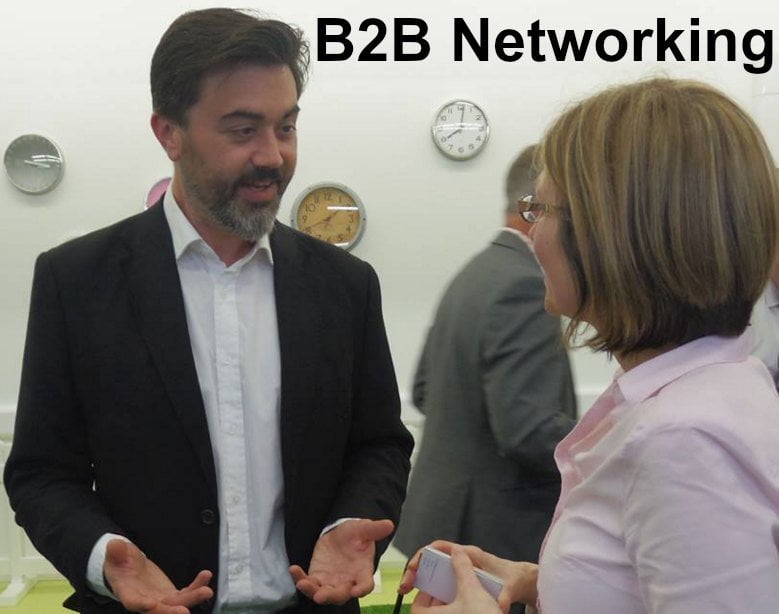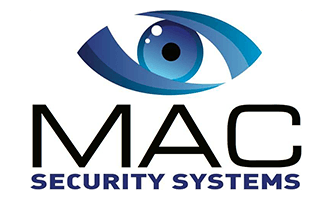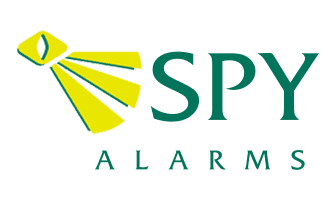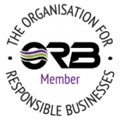Most of the Fire & Security directors we speak to have spent hundreds of pounds getting their Terms of Business right to protect themselves from potential legal problems. But did you know that you could be putting your house at risk by networking?
Here’s the problem.
Real world networking and GDPR
Many Fire & Security installation companies will send a representative to attend local networking groups.
You can have a chat to lots of business people from your town, most of whom will own their own home. It’s a great way to increase the company’s visibility as the leading local supplier of home alarms as well as commercial fire safety and access control equipment.

Many of the attendees will happily give you their business card. When you get back to the office you might be tempted to add the person’s email address (a piece of Personally Identifiable Information) to your company database. That way you can send generic marketing information (like a newsletter) whenever you feel like it.
A lot of individuals, including me, have always found this action very irritating – especially when Outlook is used to send the emails and so there is no way to opt out. A business card is consent that someone may contact you once or twice with a view to building a relationship. It is not an open invitation or agreement to spam my inbox with your product list.
One of the good parts of GDPR is the rules to say that companies can no longer just take your email address from your business card and send you generic marketing literature without your permission. They need to get your consent first
Why PECR is now a financial risk for Fire & Security Directors
PECR is the Privacy and Electronic Communications Regulations. These sit alongside the Data Protection Act and the GDPR. One of the things covered by these rules is UNSOLICITED marketing by electronic means, including marketing calls, texts, emails and faxes.
Marketing is defined as:
the communication (by whatever means) of advertising or marketing material which is directed to particular individuals
An unsolicited message is:
any message that has not been specifically requested. So even if the customer has ‘opted in’ to receiving marketing from you, it still counts as unsolicited marketing. An opt-in means the customer agrees to future messages (and is likely to mean that the marketing complies with PECR). But this is not the same as someone specifically contacting you to ask for particular information.
This does not make all unsolicited marketing unlawful. You can still send unsolicited marketing messages – as long as you comply with PECR.
The ICO have issued some large fines for companies who spam people by email or by telephone. But they’ve come up against an issue.
As reported by the Direct Marketing Association:
Previously when companies have been caught, the business entity is issued with fines and penalties rather than any individual. To get around these fines, the companies can declare bankruptcy and avoid the fine. Last year, just over half of the total fines for nuisance calls were recovered.
So, a new amendment came into force on 17 December 2018 to make company directors personally liable for breaches in these laws.
This directly impacts all company directors who engage in marketing, including those in the Fire & Security industry!
Now I’m not saying that you’re going to get a fine from the ICO if you send out one or two email newsletters to people that you or your employees have met at networking events.
BUT… you do need to bear this information in mind. Especially if you employ telemarketing companies to cold call individuals using your own or “data lists” that you have purchased.
And especially if those lists include the home phone numbers and private emails of consumers. Because the rules are much stricter for private individuals, sole traders and partnerships than they are for B2B emails.
Reasons to be cheerful – G D P Ahhhhhhhr
GDPR is not an obstacle, it’s an opportunity to show that Lollipop actually cares about everyone it comes into contact with… including how we treat your data. It’s one of the reasons we chose to partner with HubSpot marketing software! It’s actually really good for the record keeping required for GDPR.
At the end of the day, GDPR fits nicely into the Inbound model that we have been using from the very start. Attracting the Fire & Security directors who want what we do. Allowing you to find us when you need us rather than trying to force you to look at our marketing materials.
If you are ready to work with an agency that sees the value in protecting your data, click here.
Discover how we have helped a Fire & Security business to grow
With thanks to Simon Tutton of TheFullWorks
Struggling to get enough of the Right enquiries?
Since 2010, Lollipop has helped Fire & Security businesses like yours stand out in a crowded market and win millions of pounds of work...
Our Visibility Engine™ gets the Right Message to the Right Person at the Right Time. So you can win more of the Right Work with less effort.
Curious how it could work for your business?
"Genuine enquiries... at a steady pace"
Phil Clarke, CCTV Hire & Sales
Limited slots available – book now to secure yours






















